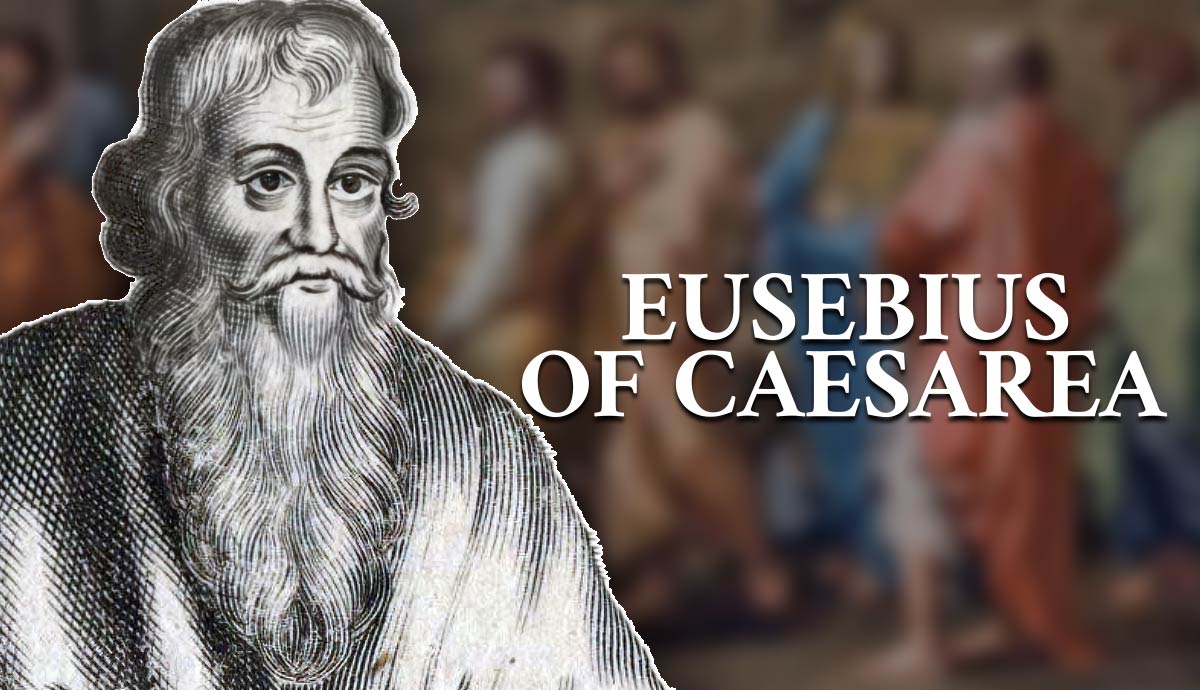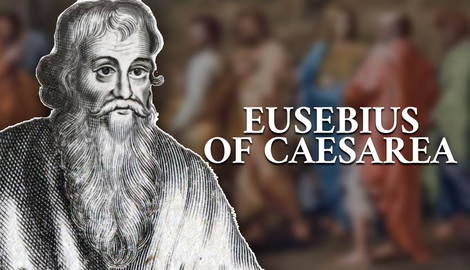
Eusebius Pamphilus, commonly known as Eusebius of Caesarea, was one of the chroniclers of the activities of the early Christian Church and responsible for much of what we know today regarding the period of Christianity following New Testament times. He is considered the Father of Church History. Eusebius lived from about 260 CE to 339 CE.
His primary work was the Historia Ecclesiastica begun around 290 CE, which chronicled the history of the early church from the death of the Apostles to the 300s. He also wrote various theological works as well as the Life of Constantine. Eusebius collected and copied many early church documents and writings, and through the preservation of his works, much of early church history has come down to us through the years. A Syriac copy from the 400s that contains the Historia has survived to the present day.
Early Life

Although little is known about his family, Eusebius was most likely born in around 260 CE, in, or near, Caesarea Maritima where he was baptized and ordained. Eusebius was taught here by the esteemed presbyter Pamphilus, and even adopted the name Eusebius Pamphili, meaning son, or servant of Pamphilus as a mark of respect for his mentor.
Theological Research

Eusebius primarily used materials from the Theological Library of Caesarea to carry out his theological research, an institution founded by the theologian Origen. The Theological Library has a vast collection of manuscripts, sources upon which Eusebius used to write his works. He was the first to attempt to compile Christian history, in a volume titled Church History, also known as Ecclesiastical History, or Historia Ecclesiastica. He knew that it was a daunting task before him, and as such he later became known as “The Father of Church History.” Among his bountiful academic research, he also wrote Preparation for the Gospel, On Discrepancies Between the Gospels, and Life of Constantine.
Historia Ecclesiastica

The Historia Ecclesiastica is extensive in its scope, containing ten books and hundreds of quotations of the sources Eusebius used. It contains some of the only records of early Christian writings which otherwise may have been lost.
Some key excerpts include the following: “But at the outset I must crave for my work the indulgence of the wise, for I confess that it is beyond my power to produce a perfect and complete history, and since I am the first to enter upon the subject, I am attempting to traverse as it were a lonely and untrodden path. I pray that I may have God as my guide and the power of the Lord as my aid, since I am unable to find even the bare footsteps of those who have traveled the way before me, except in brief fragments, in which some in one way, others in another, have transmitted to us particular accounts of the times in which they lived.”
And, “From afar they raise their voices like torches, and they cry out, as from some lofty and conspicuous watchtower, admonishing us where to walk and how to direct the course of our work steadily and safely.”
The Fate of the Apostles

Eusebius writes much about the fate of the Apostles of Jesus Christ, as well as their successors in the churches they founded. He chronicles the known lives and deaths of Christian figures such as Linus and the Apostolic Fathers Clement of Rome, Ignatius of Antioch, and Polycarp of Smyrna. Many early church martyrs are listed as well.
Eusebius: The Bishop of Caesarea

In 313 Eusebius was made the Bishop of Caesarea. He attended the Council of Nicaea in 325, and even presented a creed to the council, but what stands as the Nicene Creed eventually prevailed. He appears to have been somewhat sympathetic to the Arian position regarding the Trinity (Arians hold that the Son is subordinate to the Father) and was largely influenced by the theology of Origen, but seems to have eventually repudiated the Arian position to some degree.
Eusebius had great favor with Emperor Constantine, and wrote the History of Constantine in his honor. This history describes Constantine’s rule, with some particular attention paid to religious matters. It also includes Eusebius’s personal eyewitness account of the Council Nicaea as the council was in progress, a unique undertaking. The History of Constantine is in the form of a “panegyric,” which gives high praise to its subject. As religious persecution for orthodox beliefs by the state had ended, Eusebius was not martyred like many of the Christians before him, and likely died of old age on May 30, 339, two years after the Emperor Constantine he so admired.










